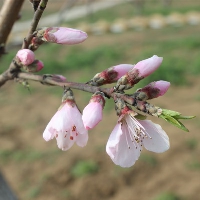If the child is unwilling to go to school after changing schools, parents should carefully find out the reasons. If the child is unwilling to tell us, we should find the teacher of the child, cooperate with him, and let the teacher pay more attention to the child at ordinary times. Pay attention to the learning situation and psychological emotions. If we find out and intervene in time, we will not be bored with school.
What to do if the child doesn't want to go to school after changing schools
1. Communicate with teachers, or ask teachers for advice. Each class will have a head teacher. In fact, parents must communicate with teachers more to understand not only their children's learning, but also their children's emotions. If children suddenly don't want to go to school, they must communicate with teachers to understand the situation, so as not to have a bad impact on their children's physical and mental health.
2. Go with a neighbor of the same age. Some children do not want to go to school because they are not familiar with the new environment. At this time, parents can "find a partner" for their children. Small partners of the same age in the same village or neighborhood can go with them, which will also eliminate the children's fear.
3. Always take care of your children. When your child doesn't want to go to school, you should communicate well with your child. As a parent, you should always care about your child. You should always pay attention to whether there are any problems with your child. Don't rush to solve the problem. Don't rush to solve the problem that your child doesn't go to school. When the child's mood is stable, talk with the child, Ask why children go to school.
Then make a decision based on the reasons. Parents should keep calm, take good care of their children, and let them feel guilty psychologically first. The solution is to solve the children's problems according to the reasons. The solution is to eliminate the children's psychological concerns and worries. You can also communicate with the children's teachers.
4. Understand the reason why the child has this idea, and see whether the child is unhappy with his classmates, is not able to keep up with his study, or is simply too much homework, which makes the child feel tired. Only when the reason why the child doesn't want to go to school is clear, can parents prescribe the right medicine to the case, properly enlighten the child, and re stimulate the child's interest in school.
What should parents do when their children's grades drop after they transfer
1. Parents should first realize whether their expectations of their children are too high and whether they are anxious, and reflect on whether the transfer is the needs of their children or parents. Secondly, parents should be encouraged to communicate more with their children, understand their children's thoughts and feelings, appreciate their children's efforts to adapt to the new school, trust their children, and understand how they view the current situation.
2. The most important thing for students is to study hard. As a student, you should realize that studying hard is the most important thing you should do, and the rest has nothing to do with you. If students are willing to study hard, they can ask their parents to apply for a remedial class, which can improve students' academic performance.
3. Shift focus from results to processes. When children have problems, it is actually a result, and there must be reasons behind the result. If we pay attention to the results, it doesn't make any sense, because the results can't be changed. What parents should do is to calmly think about the causes of the results in a calm state of mind.
And put the next main work on the process that can lead the child to have a good result next time. It's like the story that when a sheep is eaten by a wolf, it's no longer meaningful to be sad, worried or sorry about the result. What should be done is to "mend".
Junior high school children are in poor learning state, how to adjust
Parents can choose to set a goal for their children to go to key high schools. Children must have a sense of crisis to understand how big the competition is. Let children stand out and improve their performance. Children will feel that their goals are far away from themselves.
Parents should let their children have the ability to think during the learning phase, and not have some boredom. Parents should let their children understand how junior high school learning affects their children, and don't let them fall behind. With a school to go to and a goal to strive for, children will work hard.

